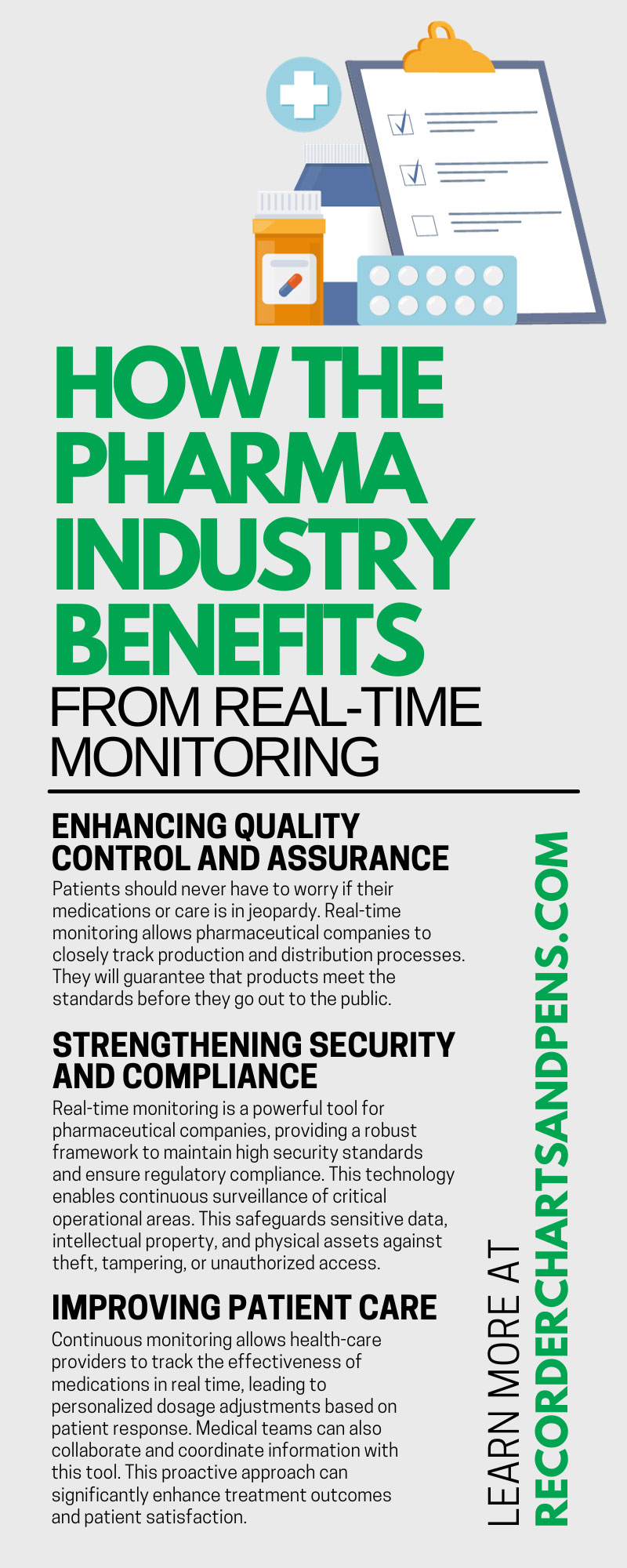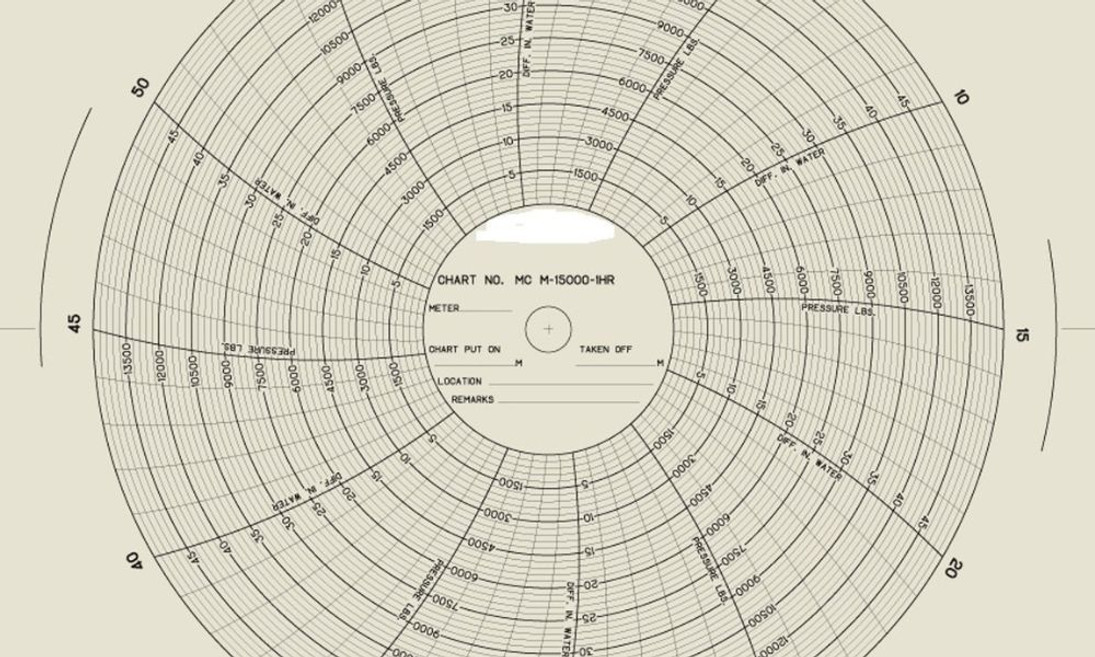2nd Jan 2024
How the Pharma Industry Benefits From Real-Time Monitoring
Data collection and science are the foundations of medicine. That’s why real-time data monitoring is an integral part of the pharmaceutical industry. This concept revolves around capturing and analyzing data as it happens, enabling companies to immediately respond to any changes or anomalies.
Continue reading to find out how the pharma industry benefits from real-time monitoring and the various uses of data analytics.
Enhancing Quality Control and Assurance
Patients should never have to worry if their medications or care is in jeopardy. Real-time monitoring allows pharmaceutical companies to closely track production and distribution processes. They will guarantee that products meet the standards before they go out to the public.
Employing sensors and advanced analytical tools allows companies to identify and resolve issues promptly. This reduces the likelihood of product recalls and regulatory infringements while reinforcing the company’s reputation for delivering safe and effective medicine.
Strengthening Security and Compliance
Real-time monitoring is a powerful tool for pharmaceutical companies, providing a robust framework to maintain high security standards and ensure regulatory compliance. This technology enables continuous surveillance of critical operational areas. This safeguards sensitive data, intellectual property, and physical assets against theft, tampering, or unauthorized access.
Real-time monitoring systems play a crucial role during the manufacturing phase. They track any deviations from standard operating procedures, promptly alerting management to potential breaches in process integrity or safety protocols. This immediate detection mechanism significantly reduces the risk of product contamination, ensuring consistent compliance with Good Manufacturing Practices (GMP).
When it comes to data protection, real-time monitoring tools excel in identifying and preventing unauthorized access or cyber threats. They promptly notify IT teams of suspicious activities, enabling swift action to protect crucial data. This is particularly vital in today’s digital age, where data breaches can result in substantial financial losses and damage to a company’s reputation.
Improving Patient Care
High-quality patient care is a top priority, and the patients shouldn’t be concerned about their treatment quality. With real-time data monitoring for areas such as security and quality control, this tool has the potential to revolutionize patient care.
Continuous monitoring allows health-care providers to track the effectiveness of medications in real time, leading to personalized dosage adjustments based on patient response. Medical teams can also collaborate and coordinate information with this tool. This proactive approach can significantly enhance treatment outcomes and patient satisfaction.
Additional Uses for Data Analytics in the Pharmaceutical Industry
Data analytics serves as a powerful tool in the pharmaceutical industry, driving strategic decisions and delivering numerous operational benefits. It offers a window into crucial insights such as market trends, patient behavior, and drug performance, enabling companies to make informed decisions and navigate the highly competitive industry landscape more effectively.
Clinical Trials
Without clinical trials, medicine can’t improve. That’s why real-time data monitoring and data analytics are essential to the pharma industry.
Health-care providers can use the real-time data collected from trial participants to monitor patient safety and response to treatment, potentially leading to quicker identification of effective drugs.
Moreover, it aids in the process of creating predictions and establishing proactive measures. This can accelerate timelines, reduce costs, and improve the precision and efficacy of trials.
Molecular Designs
Molecular design refers to the technique of designing molecules with specific chemical properties by manipulating their atomic structure. This process, often computer-assisted, involves the creation of molecular models for new compounds and the prediction of their properties and behaviors.
Scientists apply data analytics to optimize this process, using advanced computational models to predict how different structures will interact with biological targets. This predictive capacity can significantly streamline the drug development process, highlight potential drug candidates more quickly, and reduce lengthy trial-and-error testing.
Material Waste Reduction
Pharmaceutical companies can use advanced predictive models and real-time monitoring to accurately forecast production needs. This prevents overproduction and waste.
Analytics also optimize resource allocation, ensuring efficient material use in drug development. Reducing waste brings economic benefits and promotes environmental sustainability. Data analytics helps pharmaceutical companies improve waste management, which makes it a vital tool for creating a sustainable industry.
Toxicity Prediction
Data analytics proves instrumental in predicting toxicity. It’s a critical factor in drug development and patient safety.
Traditional methods of testing toxicity are often time-consuming, costly, and ethically complex due to the necessity of animal testing. However, the power of data analytics and predictive modeling allows for the assessment of potential toxicities.
The use of in silico toxicity prediction models can rapidly predict potential adverse effects of new compounds. This early identification of toxicity risks optimizes the drug development process to save time and resources while avoiding harm to participants.
Personalized Prescriptions
Everyone has a unique genetic and biological makeup. To give exceptional patient care, scientists must carefully cultivate medications with insightful information and vast amounts of patient data.
Data analytics, including genomics, proteomics, and metabolomics, will grow knowledge about how different individuals could respond to certain medications. This allows for the design of precise treatment regimens tailored to each patient to reduce potential side effects.
Analyzing data from real-time monitoring can also drive the development of targeted therapies that work at the molecular level. Incredibly precise treatments guided by the abundance of data can offer safer and more efficient patient care.
Chart Recorders Will Make a Difference in the Pharma Industry
Do you need a reliable tool for real-time data monitoring? Circular charts are the answer! These devices monitor temperature, humidity, and air quality and track inventory.
Each of these elements is crucial in various aspects of the pharma industry, and the top-quality chart recorder from Recorders Charts and Pens can deliver.
This technology can monitor and maintain storage conditions for things such as vaccines and biologics. Within an instant, companies will know of any deviations that could compromise product quality. Circular chart recorders contribute to quality control and operational efficiency.
With streamlined operations and optimized product quality, it’s clear that the pharma industry benefits greatly from real-time monitoring in many ways. By leveraging this technology, companies can elevate their operational efficiency, quality control, patient care, and regulatory compliance. All they need is the right chart recorder to support the enterprise.


